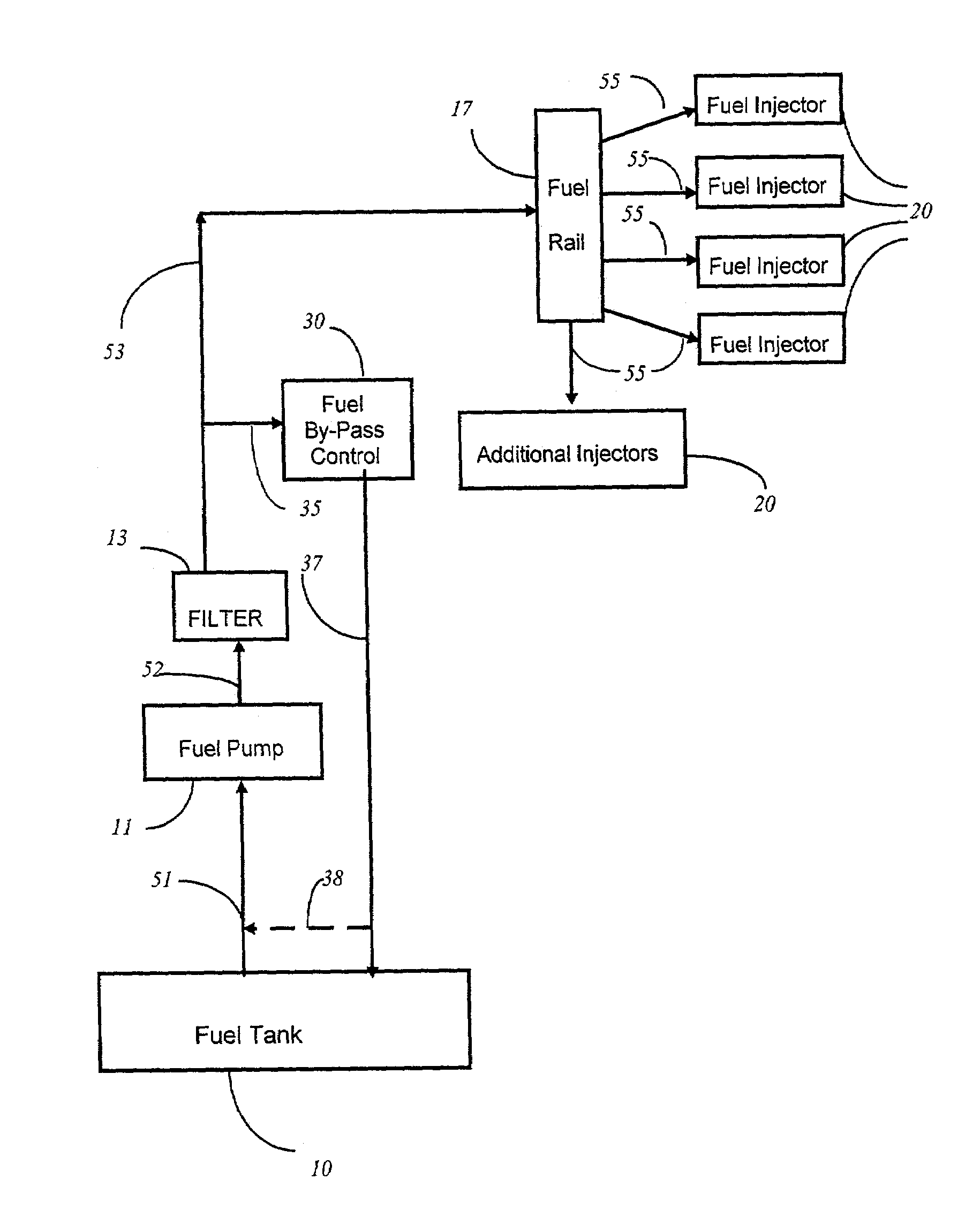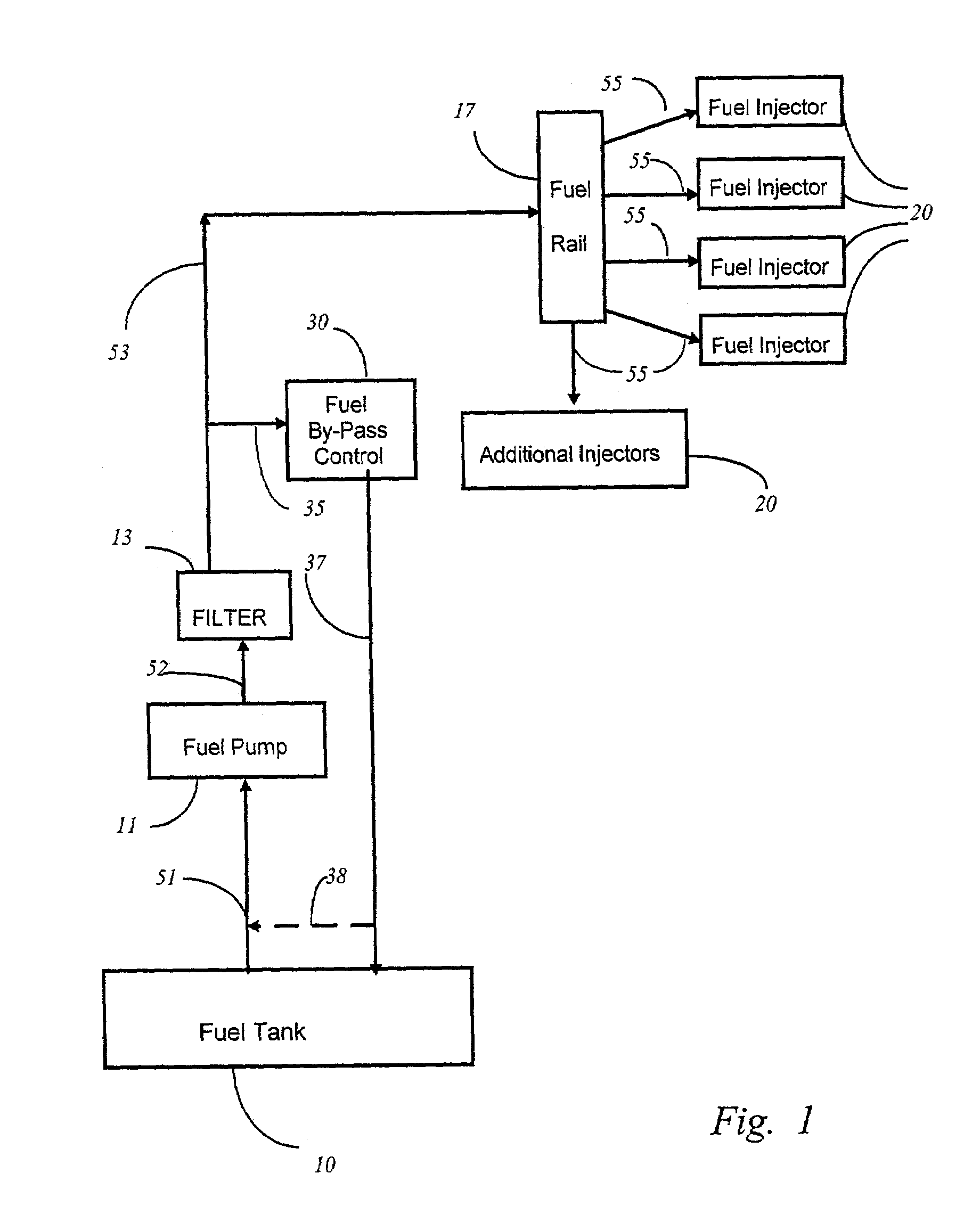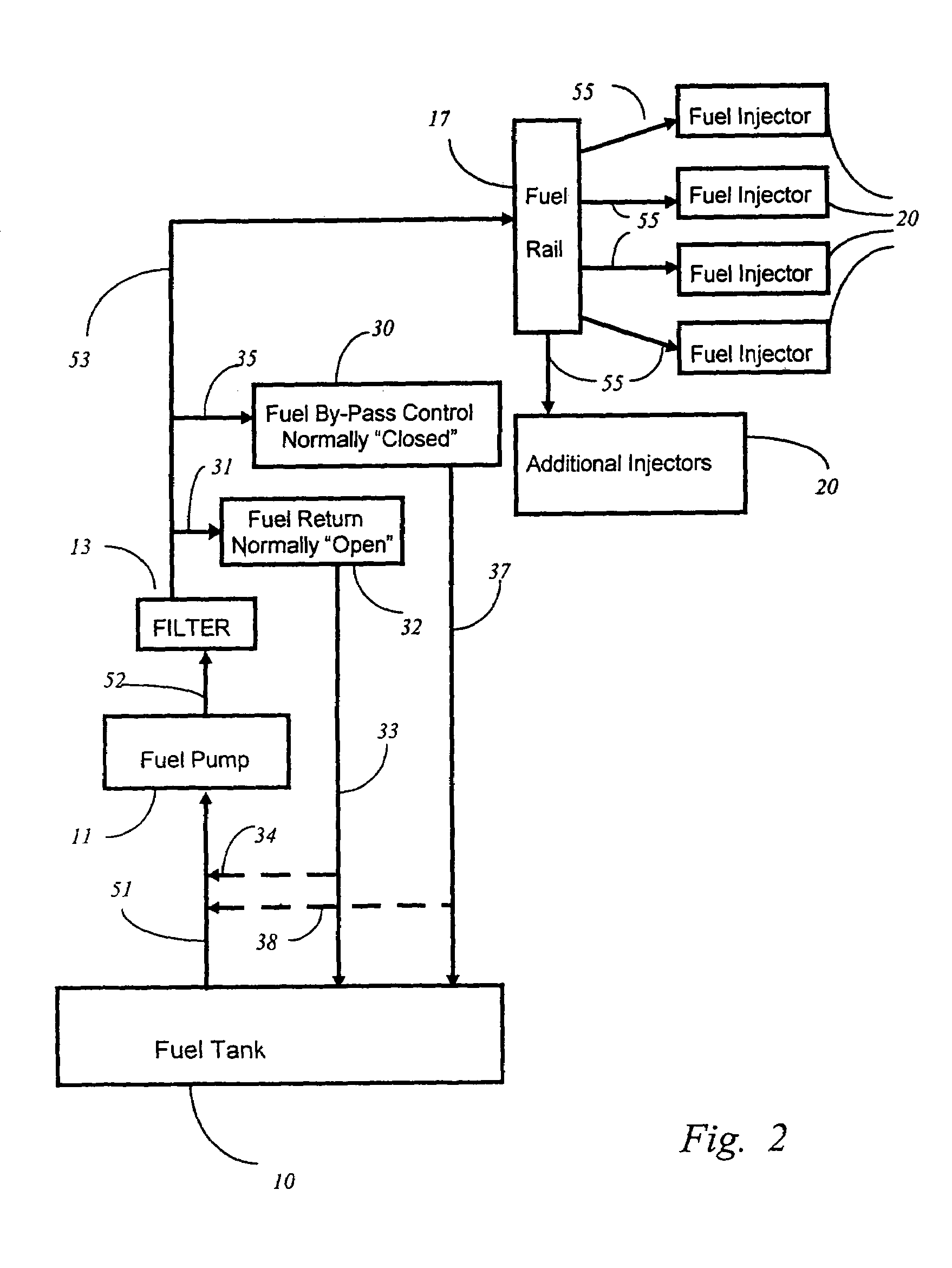Constant-speed multi-pressure fuel injection system for improved dynamic range in internal combustion engine
a fuel injection system and multi-pressure technology, applied in the field of engines, to achieve the effect of prolonging the life of the pump, avoiding excess fuel and pressure build-up, and constant fuel pressur
- Summary
- Abstract
- Description
- Claims
- Application Information
AI Technical Summary
Benefits of technology
Problems solved by technology
Method used
Image
Examples
Embodiment Construction
[0041]While the specification concludes with claims particularly pointing out and distinctly claiming the subject matter which is regarded as the invention, the invention will now be further described by reference to the following detailed description of preferred embodiments taken in conjunction with the above-described accompanying drawings.
[0042]The structures of fuel injection systems of the current invention are shown in FIG. 1 and FIG. 2. The illustration of its operations and its properties will refer to both figures. Not shown in those figures yet well understood to technical professionals in microelectronics is the set-up of microelectronics used to control the system. An embedded controller, a microprocessor, or a programmable logic circuit can be used as the brain. It may be a standalone unit, or a subroutine of the main CPU (or ECU) of the vehicle. The program may be embedded in ROM, PROM, EPROM, or other conventional storage media like hard disk, CD-ROM, tape drive, etc...
PUM
 Login to View More
Login to View More Abstract
Description
Claims
Application Information
 Login to View More
Login to View More - R&D
- Intellectual Property
- Life Sciences
- Materials
- Tech Scout
- Unparalleled Data Quality
- Higher Quality Content
- 60% Fewer Hallucinations
Browse by: Latest US Patents, China's latest patents, Technical Efficacy Thesaurus, Application Domain, Technology Topic, Popular Technical Reports.
© 2025 PatSnap. All rights reserved.Legal|Privacy policy|Modern Slavery Act Transparency Statement|Sitemap|About US| Contact US: help@patsnap.com



